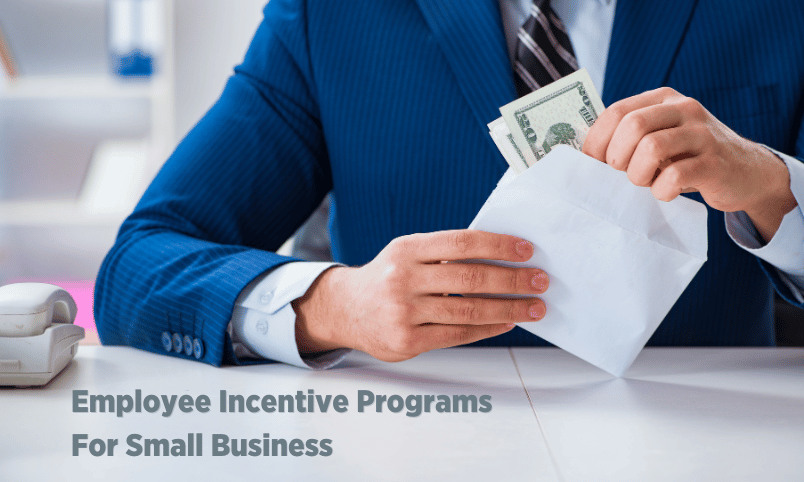By Esabda
As a small business owner, one of your most significant assets is your employees. Keeping your employees happy, motivated, and engaged is vital to the success of your business. A great way to boost your employees is through incentive programs that offer bonuses or other rewards for achieving specific goals or milestones. There are various key positions in your small business and you can create Incentive programs that suit those positions’ employees. In this article, we will discuss 10 employee incentive programs that are perfect for small businesses.
Introduction
In today’s business environment, a company’s success relies heavily on its employees’ performance and productivity. To ensure maximum output and employee retention, businesses must create an environment where employees feel appreciated and motivated. One way to achieve this is by implementing employee incentive programs.
10 Employee Bonuses and Incentives for Your Small Business
1. Performance-Based Bonuses
Performance-based bonuses are one of the most common types of incentive programs for small businesses. These bonuses are awarded to employees who achieve specific goals, such as meeting sales targets, completing projects ahead of schedule, or providing exceptional customer service.
Let’s say a small business has a performance-based bonus program in place that rewards employees for meeting or exceeding specific performance goals. For example, if an employee in the sales department meets or exceeds their monthly sales quota, they may be eligible for a bonus of 10% of their base salary.
2. Employee of the Month Program
An employee of the month program is a great way to recognize and reward employees who consistently go above and beyond in their work. The employee of the month can be chosen based on a variety of factors, including productivity, attendance, customer service, and teamwork.
RELATED: Top 10 Essential AI Applications for Small Business
3. Spot Bonuses
Spot bonuses are on-the-spot rewards that are given to employees for exceptional performance. These bonuses can be given for anything from completing a difficult project to helping a co-worker with a problem. Spot bonuses are a great way to show employees that their hard work and dedication are appreciated.
Spot bonuses are a great way for companies to recognize and reward exceptional performance in real-time, without having to wait for the end of a performance period or review cycle. They can be used to boost employee morale, motivation, and engagement, and can help create a culture of excellence within the company.
Spot bonuses can be structured in a variety of ways, and can be awarded for a range of accomplishments, such as meeting tight deadlines, coming up with creative solutions, or providing exceptional customer service.
4. Team-Based Incentives
Team-based incentives are programs that reward entire teams for achieving specific goals. These incentives can be anything from a team outing to a cash bonus. Team-based incentives are a great way to promote collaboration and teamwork among your employees.
Let’s say your small business has a team-based incentive program in place that rewards teams for achieving specific performance goals. For example, if a team in the customer service department maintains an average customer satisfaction rating of 95% or higher for three consecutive months. They may be eligible for a bonus of $2,000 to be split evenly among team members.
This is one of the most efficient and effective employee incentive programs for small businesses. This creates a synergy, and full use of the team in your small business. This helps your small business to achieve its goal faster and more efficiently.
5. Profit-Sharing Plans
Profit-sharing plans are incentive programs that give employees a share of the company’s profits. These plans are usually structured as a percentage of the company’s profits, divided among all eligible employees.
For example, let’s say a small business has a profit-sharing plan in place where 10% of the company’s profits are shared with employees. If the company has a profit of $100,000 in a given year, $10,000 would be set aside to distribute to employees as part of the profit-sharing plan.
6. Career Development Opportunities
Offering career development opportunities, such as training programs or educational opportunities, is a great way to motivate employees and help them grow in their careers. These opportunities not only benefit the employee but also benefit the business by increasing the employee’s skills and knowledge.
7. Wellness Programs
Wellness programs are incentives that focus on promoting the health and well-being of employees. These programs can include anything from gym memberships to on-site yoga classes. Wellness programs are a great way to show employees that their health and well-being are important to the business.
For example, an employee who quits smoking and achieves a healthy BMI may be eligible for a $500 cash reward or a reduced healthcare premium. The wellness program encourages employees to adopt healthy habits and lifestyles, which can result in improved physical and mental health, reduced healthcare costs, and increased productivity and job satisfaction.
Wellness programs can be a valuable investment for small businesses, as they promote a culture of health and well-being among employees and can help reduce healthcare costs over time.
8. Paid Time Off
Paid time off is a simple but effective incentive program for every small business that rewards employees with additional time off work. This time can be used for vacations, personal days, or simply to recharge and rejuvenate. Paid time off is a great way to show employees that their work-life balance is important to the business.
RELATED: 100 Effective Small Business Marketing Ideas
9. Employee Referral Programs
Employee referral programs are incentives that reward employees for referring new hires to the business. These incentives can be anything from a cash bonus to a paid vacation. Employee referral programs are a great way to find new talent and reward employees for their efforts.
For example, let’s say your small business is looking to fill a job opening. And offers a $500 cash bonus to any employee who refers a candidate who is ultimately hired for the position. If an employee refers a friend who is hired for the job, that employee would receive a $500 cash bonus as a reward for their referral.
10. Employee Stock Ownership Plans
Employee stock ownership plans (ESOPs) are incentive programs that give employees ownership in the company. ESOPs are usually structured as a percentage of the company’s stock, which is distributed among all eligible employees. ESOPs are a great way to promote employee loyalty and retention.
Benefits of Employee Incentives For Small Business
- Increased employee motivation and engagement: Employee incentives can help motivate and engage employees by giving them a sense of purpose and recognition for their hard work. This helps employees feel more appreciated. Which keeps them more motivated to perform at their best.
- Improved employee retention: Employee incentives can help small businesses retain their top talent by showing employees that their contributions are valued and appreciated. When employees feel valued, they are more likely to stay with a company for the long term.
- Increased productivity and performance: Employee incentives can help improve productivity and performance by setting clear expectations and providing a sweet reward for achieving goals. When employees know what is expected of them and are rewarded for a meeting, they are more likely to perform at a high level.
- Enhanced company culture: Employee incentives can help create a positive company culture by promoting teamwork, collaboration, and a shared sense of purpose. When employees feel connected to their colleagues and the company mission, they are more likely to work together towards common goals.
- Improved profitability and success: Employee incentives can ultimately contribute to a small business’s profitability and success by improving employee morale, motivation, and performance. When employees are engaged, productive, and committed to the company’s success, the business is more likely to thrive and achieve its goals.
In Conclusion
In conclusion, employee incentive programs are a great way to motivate and engage your employees. By offering bonuses, rewards, and other incentives, you can show your employees that their hard work and dedication are appreciated. When implementing an employee incentive program, it’s essential to consider your business’s goals. The type of incentives that will be most effective, and the budget available for the program.
You can offer these above employee-intensive and bonus programs for small businesses. Which helps you create an opposite and engaging environment where employees feel valued and appreciated.




